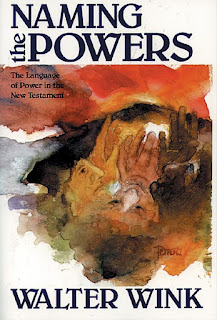Meanwhile, back at the ranch…
…or, Something to keep you busy over the weekend… …or, The Past Fortnight in the Theoblogosphere. Or, the past **two** fortnights in the theoblogosphere! It has been four weeks since our last link post . But, as usual, we return from riding the range of the interwebs to bring you some of the best in thought-provoking reflection. Here’s what we’ve been up to here at DET: Bender on Schleiermacher: Will Science Trump Creation Doctrine? What Am I Reading? George Hunsinger, “The Beatitudes” What Am I Reading? Wink's Naming the Powers Why do christology? H. R. Mackintosh has 4 reasons (via Purves) Got General Revelation? Well, Isn't that Special! Francis Turretin’s Ecclesiology, 18.1: What comes first, church or doctrine? And here is some good stuff from elsewhere: What you need to know about Karl Barth The five biggest reading mistakes and how to avoid them Karl Barth: Introductory Resources Persecute Me, Please: God’s Not Dead 2 and the Evangelical Lust for Vict...


